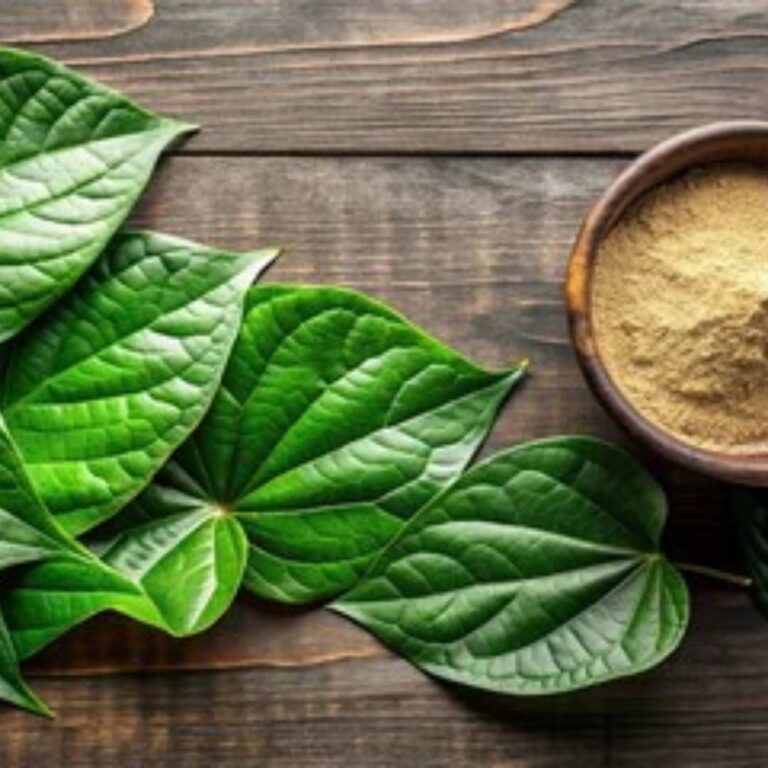Kratom is a popular supplement to find natural pain, anxiety, or fatigue relief among countless individuals. However, as more and more people consume it, there are concerns raised regarding its effects on the heart.
Does kratom have heart damage? Does it increase your blood pressure or cause heart rhythm issues? Users even go as far as asking themselves whether kratom would bring about chest pain, seizures, or even worse conditions.
In this blog, we’ll examine closely what contemporary scientific evidence states about the actual impact of kratom on the heart, the people who are most likely to be affected, and the warning symptoms that should not be ignored in case one uses the mentioned material.
Kratom Heart Effects: What Do We Know?
Common Cardiovascular Reactions
The usual acute cardiovascular effects of Kratom include tachycardia (increased heart rate) and hypertension (high blood pressure).
This is often followed or accompanied by a feeling of the heart racing or pounding, as many users also report. Although these symptoms are mostly mild and temporary, they may be more severe in people who have underlying heart conditions.
How Does Kratom Affect the Heart?
The primary active alkaloid of Kratom, mitragynine, has a neurotransmitter that is active with opioid, adrenergic, and serotonergic receptors. In larger quantities or with repeated use, the heart may be stimulated, blood pressure elevated, and the cardiac rhythm modified.
Kratom and Blood Pressure
Does Kratom Raise Blood Pressure?
Kratom has been known to stimulate many individuals under low to moderate doses and has been known to increase the heartbeat and blood pressure.
The effect is particularly pronounced on people who are already hypertensive or who suffer from heart disease, because kratom might make their conditions worse.
- User reports: Some people notice a spike in blood pressure and heart palpitations after taking kratom, particularly with white or green vein strains.
- Symptoms: Dizziness, blurred vision, and chest pain have been reported by users who experience a blood pressure.
Does Kratom Lower Blood Pressure?
As asserted by some users, they use kratom to relax, curb stress, and this may serve to lower blood pressure.
Nonetheless, limited scientific research results in the establishment that kratom provides reliable measures in minimizing the blood pressure level in the majority of individuals. The general response might be dosage, strain, and personal reaction-oriented.
Kratom and High Blood Pressure (Hypertension)
In case it is your history to have high blood pressure, it may increase your risk of complications as Kratom is a stimulant. Using kratom when you have high blood pressure or other cardiovascular issues is not advised because it is better to consult a medical specialist first.
Kratom and Heart Arrhythmia
What Is Heart Arrhythmia?
Arrhythmias refer to abnormal heart rhythms which may include less dangerous conditions such as a racing pulse and threatening to life situations such as ventricular fibrillation.
Can Kratom Cause Arrhythmia?
Studies indicate that mitragynine can lengthen the QTc interval, a predisposing indicator of arrhythmia, which occurs through the action on potassium channels within heart cells.
Analysis of regular kratom use revealed some ECG abnormalities, including sinus tachycardia, left axis deviation, and QTc prolongation. Nonetheless, sinus tachycardia (rapid heartbeat) was the only statistically important difference between users and non-users.
- Case reports have associated the use of kratom with rare cases of ventricular arrhythmia or cardiopulmonary arrest, but most of the cases associated had other drugs or underlying medical problems.
- In those cases where kratom has been found to have led to death, some changes experienced in the heart have included coronary atherosclerosis, hypertensive cardiovascular disease, left ventricular hypertrophy, and myocarditis.
Arrhythmias may occur but are not very common, and the risk is said to be greater at large doses, with chronic dosing, or when there is a heart problem in the individual.
Kratom Cardiotoxicity: Can Kratom Harm the Heart Muscle?
Cardiotoxicity refers to direct damage to the heart muscle or its electrical system. While most healthy adults are unlikely to experience significant heart damage from occasional kratom use, chronic or heavy use has been linked to:
- Coronary atherosclerosis
- Myocardial infarction (heart attack)
- Cardiac arrhythmia
- Cardiomegaly (enlarged heart)
- Myocarditis (heart inflammation)
These findings are mostly from case reports and autopsy studies, and often involve other risk factors or substances.
Kratom and Chest Pain
Chest pain is one of the red flag symptoms that was reported by some of the kratom users, mainly after they felt palpitations or increased blood pressure.
When you use kratom and feel some pain in your chest, you should immediately quit and go to the doctor because this can be one of the symptoms of a severe health condition with your cardiovascular system.
Kratom and Heart Attack
Although uncommon, reports of heart attack (myocardial infarction) among users of a large or prolonged dose of kratom, especially heart disease sufferers, or when it is combined with other drugs, have been made. Healthy users will have little chance of a heart attack, taking kratom by itself, though the risk is not zero.
Kratom and Blood Pressure: Summary Table
| Effect | Evidence/Reports | Risk Factors |
| Raises blood pressure | Common, especially at low/moderate doses | Stimulant strains, high doses, and hypertension |
| Lowers blood pressure | Anecdotal, not proven | Possibly with sedating strains, relaxation |
| Heart arrhythmia | Rare case reports | High doses, chronic use, and heart disease |
| Chest pain | User reports, case studies | Palpitations, hypertension, anxiety |
| Heart attack | Rare case reports | Chronic use, existing heart disease |
Kratom and Seizures
Can Kratom Cause Seizures?
Yes, kratom can cause seizures, especially at high doses or in people with a history of epilepsy or other neurological conditions. Seizures have been reported in 6–10% of kratom-related adverse events in the United States, and up to 17.5% in some populations in Thailand.
- Risk factors: High doses, underlying epilepsy, polysubstance use, or genetic predispositions.
- Symptoms: Agitation, confusion, muscle twitching, convulsions, or loss of consciousness.
How Common Are Seizures With Kratom?
Although not widespread, a seizure is a known danger, particularly among people who take kratom in large quantities or mix it with other drugs that reduce the seizure threshold.
Kratom and Heart Function: What the Studies Show
- Acute effects: Most users experience only mild, transient increases in heart rate and blood pressure.
- Chronic effects: Long-term or heavy use may increase the risk of structural heart changes, arrhythmias, and, rarely, heart attack or heart failure.
- Polysubstance use: Many serious cardiovascular events involve kratom with other drugs or in people with pre-existing heart disease.
Who Is Most at Risk for Kratom Heart Effects?
- People with pre-existing heart disease or hypertension
- Those with a history of arrhythmia or seizures
- Individuals using high doses or combining kratom with other stimulants or drugs
- Older adults and those with multiple health conditions
Warning Signs: When to Seek Medical Help
Seek immediate medical attention if you use kratom and experience:
- Chest pain or tightness
- Severe or persistent palpitations
- Fainting or loss of consciousness
- Seizures
- Sudden weakness, numbness, or difficulty speaking
Kratom and Heart Health: Practical Tips for Safer Use
- Start with a low dose: Avoid high doses, especially if you’re new to kratom or have any cardiovascular risk factors.
- Monitor your symptoms: Track your heart rate and blood pressure, especially after taking kratom.
- Avoid mixing with other stimulants or drugs: Combining kratom with caffeine, energy drinks, or other substances increases risk.
- Consult your doctor: Especially if you have heart disease, high blood pressure, or a history of seizures.
- Listen to your body: Stop using kratom if you notice chest pain, palpitations, dizziness, or any other concerning symptoms.
Final Thoughts
The results of kratom on the heart are varied and complicated, and rely on dosage, conditions, and other drugs consumed. Although the majority of healthy adults do not have significant concerns in terms of cardiovascular changes, there is a reported risk of tachycardia, hypertension, arrhythmia, seizures, and, in some cases, heart attack.
When it comes to cardiac problems, hypertension, and past seizures, kratom should be taken with paramount care, or the alternative is not to take it.
Nevertheless, it is never wrong to consult a medical practitioner, who may advise you on introducing kratom into your wellbeing regimen, as well as monitoring key signs and symptoms of heart-related conditions.
Check These Out:





